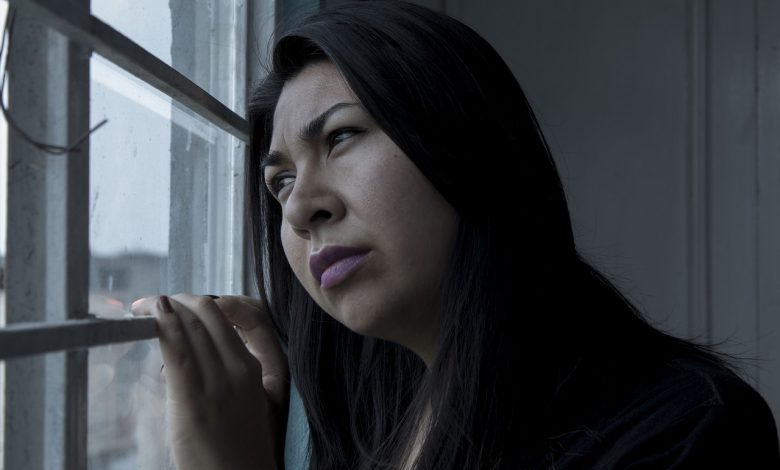5 Early Signs & Symptoms That You May Be Pregnant

Think you might be pregnant? Or are you trying to get pregnant? How would you confirm your pregnancy? Apart from the missed period, which is the first sign of pregnancy, there are a couple of ways you’re actually pregnant. As per the American Pregnancy Association Poll:
- For 17% of women, breast tenderness is the first sign of pregnancy.
- 29% of pregnant women say the first sign of pregnancy is a missed period.
- 25% of pregnant women say it is nausea.
Here are some signs and symptoms moms-to-be experience in the initial days of pregnancy:
#Heartburn and indigestion
During the first trimester, that burning sensation in your chest after you eat something may be a sign that you’re pregnant. Heartburn, indigestion, or reflux is the discomfort and pain caused by acid reflux from the stomach to the esophagus. This happens due to the pressure of the growing uterus on the stomach.
What to Do:
- Avoid eating just before going to bed.
- Eat small and more frequent meals.
- Wear loose-fitting maternity clothing.
- Sleep with extra pillows to keep your head raised.
- Avoid any food or fluid that triggers symptoms, such as caffeine, alcohol, spicy or fatty foods
#High blood pressure and dizziness
In most cases, blood pressure drops in the early stages of pregnancy, causing you a feeling of dizziness. On the other hand, almost all cases of hypertension in the first trimester indicate pregnancy. The increased blood volume and hormonal changes in your body are responsible for dizziness, lightheadedness, and infrequent fainting. You feel faint when you change position. For example, when you stand or get out of your bed.
What to Do:
- Switch to pregnancy-friendly exercises.
- Drink enough water and snack regularly.
- Track your blood pressure regularly.
- Stand up slowly when getting up
#Frequent urination and incontinence
The urge to urinate more frequently starts about two to three weeks after conception. Shortly after you become pregnant, the amount of blood in your body increases, and your kidneys process more fluid than usual. Consequently, you may find yourself experiencing more frequent urination or accidentally leaking while coughing, sneezing, or laughing.
What to Do:
- Drink about 300 mL of extra fluids daily.
- Don’t drink fluids too close to bedtime.
- Plan out your bathroom trips ahead of time.
#Mild cramping and spotting
About four weeks after conception, the fertilized egg implants itself into the wall of the uterus. This can cause implantation bleeding, which is similar to a light period. Mild cramping in the early weeks of pregnancy indicates the proper attachment of the fertilized egg to the uterus wall.
What to Do:
- Avoid drinking alcohol, smoking, or using illicit drugs
- If you experience severe pain or cramping, you should contact your doctor immediately.
#Breast changes
Breast changes are common while pregnant, and for most pregnant women, they are the first sign of pregnancy. During the one or two weeks after conception, you may notice that your breasts are:
- Heavy
- Sensitive
- Painful
- Swollen
Some women may also notice a darkening of the skin surrounding the nipples, known as areolas. This happens due to increased blood flow to the breast area.
What to Do:
- Purchase a couple of comfortable, supportive maternity bras to provide enough room for your growing breasts in the coming months. Choose cotton, underwire-free bras as they are super comfortable.
- Use breast pads to reduce nipple pain.
What Else Could It Be?
Fatigue or tiredness can also be caused by:
- Improper nutrition
- Pending menstruation
- Tension or stress
- Allergies or other ailments
- New workout regimen
- Lack of sleep
- Common cold or flu
- Exhaustion from working too hard
- Depression or other mental health struggles
A late or missed period, which is the most popular sign of pregnancy, could also be caused by:
- Change in birth control usage
- New workout regimen
- Excessive weight gain or loss
- Fatigue or exhaustion
- Hormonal imbalance
- Breastfeeding
- Pending menstruation
- Tension or stress
- Various illnesses
Morning sickness or nausea, the second most common early pregnancy symptom, might take place due to:
- Food poisoning
- Change in hormonal birth control
- Anxiety, tension, or stress
- Other stomach ailments
Swollen or tender breasts, one of the most common symptoms of pregnancy, might be triggered by:
- Hormonal imbalance
- Change in hormonal birth control
- Impending menstruation
Tips to Relieve Early Pregnancy Symptoms
Listed below are some home remedies and self-care strategies to help relieve some of the pregnancy symptoms that may be troubling:
- Drink plenty of fluids.
- Avoid lifting heavy objects.
- Stick to a nutritious and well-balanced diet.
- Avoid lying on the back for a prolonged time.
- Sleep on your left side on a firm mattress with a pillow between your legs.
- Exercise daily to strengthen and tone your abdominal muscles.
- Wear clothes designed for pregnant women to stay relaxed and comfortable.
- Use a pregnancy girdle or sling to support your belly.
- Keep weight gain under control.
- Avoid spicy foods that trigger heartburn.
- Eat foods rich in fiber to avoid constipation, such as whole grains.
- Bend the knees and keep the back straight while lifting your older children.
- Eat small, frequent meals to combat morning sickness.
- Wear high-stretch maternity leggings to help relieve swollen legs.
When to get help?
If you experience any of the following signs or symptoms, get in touch with your healthcare provider:
- Leaking amniotic fluid
- Vomiting that will not stop
- Pain that doesn’t go away
- Less movement of your baby than usual
- Widespread itching of the skin
- Vaginal bleeding
- A headache that will not go away
- Sudden swelling of face, hands, and feet
- Vision loss or blurred vision
- Severe abdominal pain
- A high temperature
Where to get help?
If you’re in trouble due to any pregnancy symptom, don’t hesitate to get assistance from:
- Your G
- Your midwife
- Your obstetrician
- Your maternity hospital
- Your pharmacist
There are many early signs and symptoms of pregnancy, but the best way to confirm your pregnancy is to take a pregnancy test at home using a home pregnancy test kit or visit a gynecologist for the same. If you find your pregnancy test positive, schedule a prenatal appointment as soon as possible. The sooner you can get prenatal care, the better!




